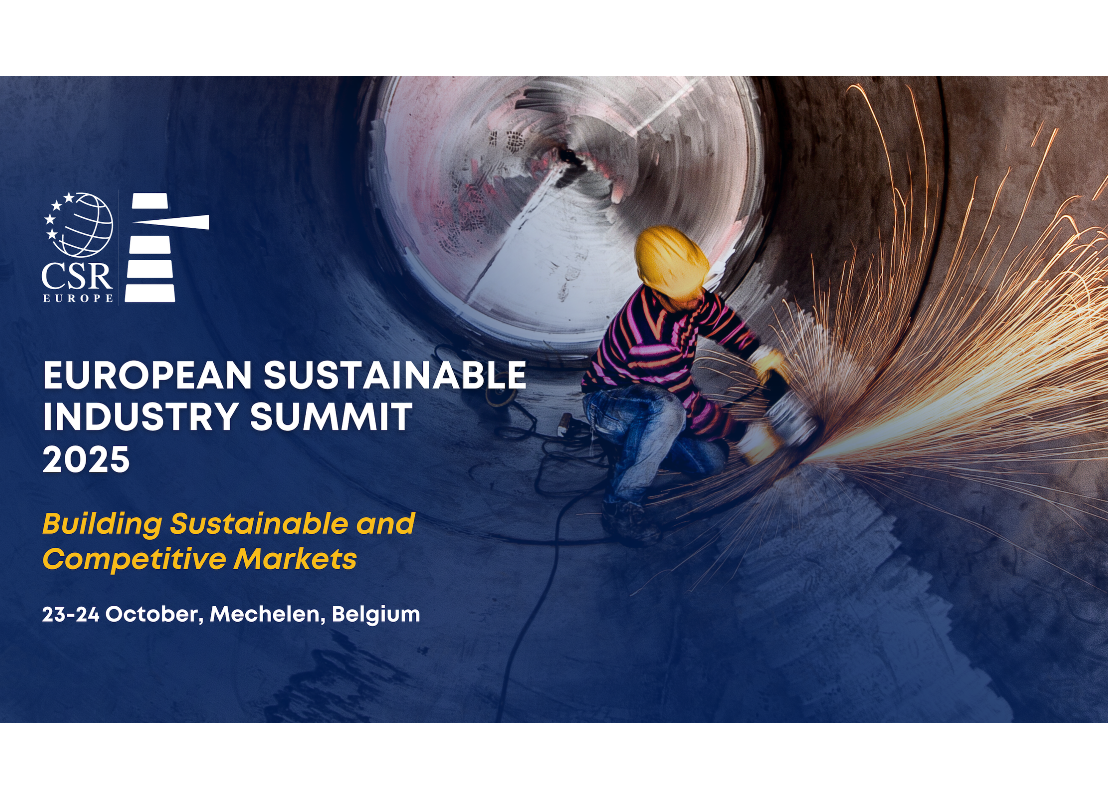The CSR Europe Conference reveals a pivotal shift in how sustainability is perceived and operationalized across European businesses and policy circles. The avalanche of new regulations has narrowed the focus to compliance, often turning sustainability into a perceived burden and a party-political agenda. This has led to backlash and a sense of fatigue among companies, especially as the scope remains wide and guidance is lacking.
A Key Strategic Shift
The central challenge identified is to “unlock business value with and by sustainable value.” The conference emphasized moving beyond mere compliance to leverage sustainability as a driver of competitiveness, resilience, and innovation. This means reframing sustainability not as regulation, but as a core business imperative and a source of market advantage.
CSR Europe’s calls for a new sustainability narrative: From compliance burden to long-term strategic value.

Dirk Le Roy
Managing Director
Emerging Priorities
Business Value Creation
Regulatory Evolution & Simplification
Integration & Innovation
Resilience, Security, and Competitiveness
Social Dimension & Diversity
1. Business Value Creation
Companies are urged to answer four critical questions:
Does sustainability support value creation for the company?
Do we have the right capabilities?
Are we engaging with business partners?
Where is our competitive advantage?
The narrative is shifting from “how” to “what” and “why”—focusing on the business case for sustainability and the incentives for responsible conduct.
2. Regulatory Evolution & Simplification
The European Commission is moving toward clearer, more pragmatic regulation, with longer implementation times and reduced compliance burdens. Upcoming reforms (like public procurement) aim to support the European economy and build a “democracy shield” against negative impacts on civic space and protect independent media.
3. Integration & Innovation
Sustainability must be integrated into business strategy, not treated as a tick-box exercise. Companies like Airbus and Coca-Cola showcased how sustainability drives operational efficiency, talent attraction, and market positioning. There’s a call for simplified standards (“one gold standard”) and leveraging digital tools and AI to manage compliance and unlock new opportunities.
4. Resilience, Security, and Competitiveness
The conference highlighted the need for a stronger narrative linking sustainability to resilience and security, especially in the context of geopolitical shifts and energy/resource dependencies. The EU’s climate and industrial ambitions should reinforce each other, with clean energy and circular economy initiatives at the forefront.
5. Social Dimension & Diversity
New regulations on forced labor and diversity are coming, with quantifiable costs for non-discrimination. The business case for diversity is not just economic but also about competitive edge and political will.
Actionable Recommendations
Partner closely with finance to build robust business cases for sustainability.
Invest in high-quality sustainability data.
Focus on sustainable innovation and strategic planning as drivers of value creation.
Build networks for peer learning within the company to accelerate change.
Conclusion
CSR Europe’s conference signals a transition from compliance-driven sustainability to a strategic, value-creating approach. The future lies in integrating sustainability into core business strategy, simplifying regulatory frameworks, and fostering innovation and resilience. Companies that embrace this shift will be better positioned to thrive in a competitive, rapidly evolving European market.

